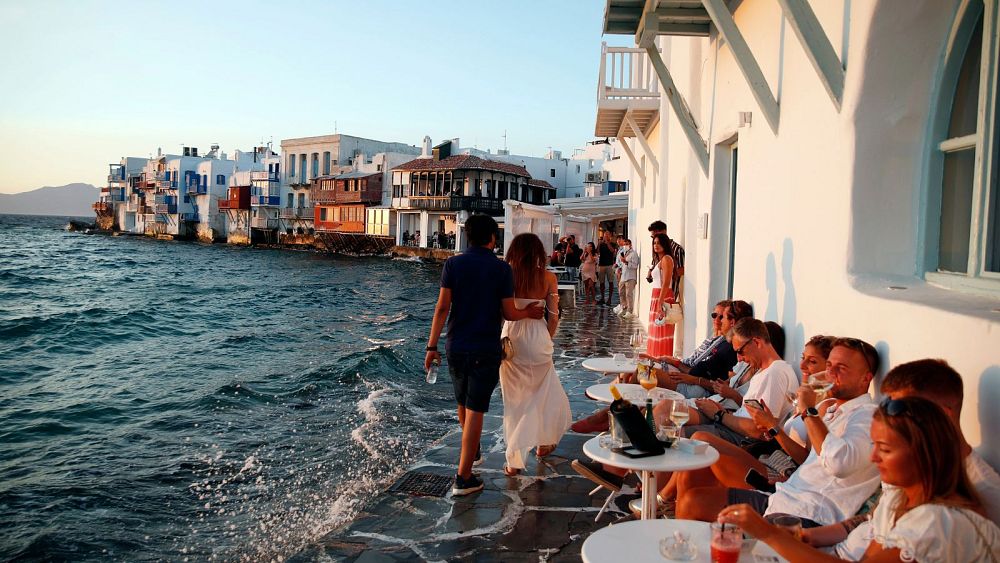
The Greek government has vowed to stop illegal construction on Mykonos – the famous party island and a tourist hotspot in the Aegean Sea – after an archeologist was attacked earlier this month during a dispute over a local building project.
“The law will be applied to Mykonos,” Greece’s minister for environment and energy Kostas Skrekas said in a statement released on Tuesday. He added that that no construction in the rural areas of the Greek islands will be permitted beside the current urban plan.
“No illegal project will be legalised. There will be no escape,” he said, adding that those who attacked the archeologist will be punished.
The archeologist, Manolis Psarros, was reportedly beaten up by an unidentified man on 7 March outside of his home in Athens. The incident is currently under police investigation, but it’s believed to be linked to pressure to extend tourism development in Mykonos.
In Greece, permission to go ahead with a building project often depends on the approval of the local archeological service, which is in charge of preserving the country’s rich cultural heritage. Mykonos, like many other locations in Greece, has an ancient history and hosts an archeological museum.
Interviewed by local media after being attacked, 53-year-old Psarros – who is responsible for checking building permits and recording potential violations on the resort island – has denounced the fact that construction activity on the popular island of Mykonos has recently accelerated, mainly fuelled by tourism.
In order to reign in a construction boom in Mykonos and Santorini, the Greek authorities suspended granting construction licenses for new tourist accommodation in rural areas outside the islands’ urban plans in 2020. But the suspension lasted only one year.
The Association of Greek Archaeologists has recently reported that illegal construction in Mykonos is “out of control”. Following the attack on Psarros in Athens, state-employed archeologists in Greece staged a five-hour protest against what they described as a mafia-style attack.
For Greece, addressing the issue of excessive and illegal construction on its islands is a matter of carefully balancing the need to attract tourism – which represents a quarter of the country’s GDP – and preserve that same natural beauty which attracts so many visitors to its shores in the first place.
After two years of slowdown caused by the pandemic, tourism has once again picked up in Greece, though it hasn’t reached the same levels reported in 2019. Last year, over two million tourists visited Mykonos.



